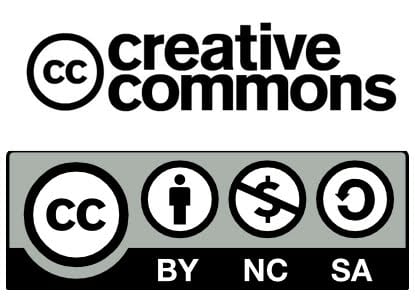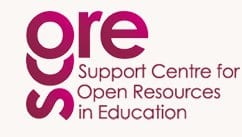Open Educational Resources (OER) are online materials provided free by their authors under Creative Commons or other licence for anyone who wishes to use them for educational purposes. OERs are part of the wider open education movement. The concept of openness with reference to education is integral to digital scholarship. CERD have been leading on adopting the philosophy and practice of open education with external JISC HEA funding under Phase Three of the UK OER Programme. The project website is at http://oer.lincoln.ac.uk
Further information about the UK OER Programme Phases 1-3 can be found here http://www.jisc.ac.uk/oer
Open Educational Resources (OER) and Massive Open Online Courses (MOOC) are freely available online learning materials licenced with a Creative Commons Licence. There are six different licences which cover reuse and repurposing of content under commercial and non commercial terms. The Creative Commons website offers guidance on selecting the most appropriate licence at http://creativecommons.org/choose.
There are multiple places when free open educational content can be found.
SCORE (Support Centre for Open Resources in Education) is based at the Open University and funded by HEFCE as a three year project (2009-2012) to support engagement with creating, sharing and using open educational resources. SCORE have created a list of educational repositories where OER can be found http://www8.open.ac.uk/score/finding
SCORE have also been involved in two other sites Digital Scholarship and Ready to Research. These sites are portals to collections of open educational resources.
Ready to Research hosts a collection of Open Educational Resources (OERs) on research topics. http://www.readytoresearch.ac.uk
 Digital Scholarship is a portal to a collection of Open Educational Resources (OERs) accessed from repositories and institutions around the world.
Digital Scholarship is a portal to a collection of Open Educational Resources (OERs) accessed from repositories and institutions around the world.
The Open University have made resources and courses available through Open Learn at http://openlearn.open.ac.uk The first open educational resources were released by the Massachusetts Institute of Technology’s MITOpenCourseware in 2001. Today there are open course platforms offering a range of free learning opportunities for example Coursera, Udacity and the iTunes University.
The SCONUL Seven Pillars model of information literacy has been adopted by librarians and teachers around the world as a means of helping them to deliver Information Literacy to their learners. In 2011,the model was updated and expanded to reflect changes in our understanding bought about through digital ways of working. A series of ‘lenses’ have been applied to the generic ‘core’ model of information literacy for higher education. These include an open content lens which provides a useful framework for engaging with the principles of open education in a digital age. The Digital Literacy model can be downloaded from the Seven Pillars site or as a Word Document froom this link SCONUL Open Content lens
 The Capetown Open Education Declaration (2007) at http://www.capetowndeclaration.org is the statement of principle, strategy and commitment, which lies at the heart of the open education movement and calls for the licencing of open educational resources so they are made freely available. The Capetown Open Education Declaration includes the principles of inclusion, namely that: ‘Resources should be published in formats that facilitate both use and editing, and that accommodate a diversity of technical platforms. Wherever possible they should also be available in formats that are accessible to people with disabilities and people who do not yet have access to the Internet.’
The Capetown Open Education Declaration (2007) at http://www.capetowndeclaration.org is the statement of principle, strategy and commitment, which lies at the heart of the open education movement and calls for the licencing of open educational resources so they are made freely available. The Capetown Open Education Declaration includes the principles of inclusion, namely that: ‘Resources should be published in formats that facilitate both use and editing, and that accommodate a diversity of technical platforms. Wherever possible they should also be available in formats that are accessible to people with disabilities and people who do not yet have access to the Internet.’
OER Documentation
Yuan, L., MacNeill, S. and Kraan, W. (2008) Open Educational Resources – Opportunities and Challenges for Higher Education. JISC CETIS at http://wiki.cetis.ac.uk/images/0/0b/OER_Briefing_Paper.pdf
Niko, S. (2010) University of LeicesterOpen Educational Resource (OER) Toolkit. http://www2.le.ac.uk/departments/beyond-distance-research-alliance/projects/otter/documentation/University%20of%20Leicester%20OER%20Toolkit%20version%2
iTunes U and the OERu: Two Different Ways to Reach the World by Gabi Witthaus and Terese Bird. This case study summarises the findings from the TOUCANS project and the SPIDER project.case study of mass models for OERs. http://www2.le.ac.uk/departments/beyond-distance-research-alliance/projects/toucans/Case%20Study%20-%20mass%20models%20for%20OERs_final.pdf/view




